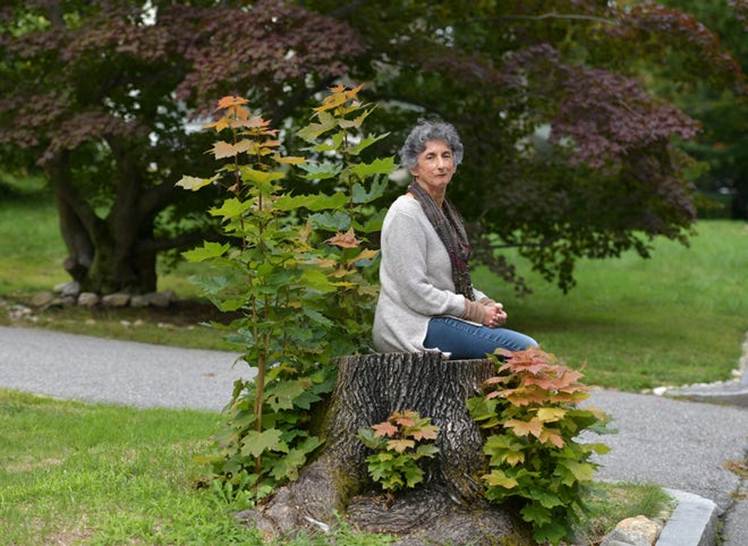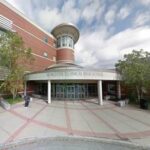Friends of Vocational Technical & Agricultural Education,
We are most pleased to share this outstanding news for the Worcester Public Schools.
Chapter 74 Vocational Technical teachers from Worcester Tech will be creating lesson plans to be used at various grade levels to bring more environmental education to the city’s public schools.
MAVA extends its appreciation to the Worcester Tech teachers involved in this important curriculum development!!
David
Teaching climate change in Worcester schools? Effort under way to do more
Henry Schwan Worcester Telegram & Gazette
WORCESTER — Evelyn Herwitz used a metaphor to describe the work to bring more environmental education to the city’s public schools.
Herwitz, an environmentalist, author and vice chair of the city’s Green Worcester Advisory Committee, was the driving force behind establishing two Miyawaki forests in Worcester. The small plots of native plants replaced urban blight along McGrath Boulevard downtown and at the Plumley Village apartments while providing environmental benefits and community pride.
The seeds planted in those forests, said Herwitz, are like the steps she and others are taking to raise the bar for environmental education in the schools.
“We’re planting more seeds in the school curriculum,” said Herwitz of the effort to add more information about climate resilience in classrooms. “It’s going to ground students in what’s happening and a sense of connection to the community.”
It could also open their eyes to future environmental careers, she said.
 The Worcester schools didn’t make David Mangus, the district’s science and engineering liaison, available for an interview before this story’s deadline.
The Worcester schools didn’t make David Mangus, the district’s science and engineering liaison, available for an interview before this story’s deadline.
The work started a year ago as Herwitz and others on the Green Worcester Advisory Committee met with school officials and the city’s Department of Sustainability and Resilience. Some committee members have noted the schools appear to have limited curriculum and extracurricular activities related to the environment.
Two initiatives resulted from the meetings, and the city hoped it would get a $3 million state grant to pay for them. That didn’t happen.
A smaller grant of a little more than $1 million arrived and while most of the money will be used by city staff to analyze Worcester’s stormwater drainage system, some of the funds will pay for creating lesson plans developed by teachers at Worcester Technical High School, said John Odell, the city’s chief sustainability officer.
One goal is to train high school students for climate resiliency jobs and connect them with summer work to help maintain the city’s green projects. That could include work on Worcester’s eight rain gardens and two Miyawaki forests. Stormwater education at four elementary schools is another goal.
The second effort targets middle school students who would learn from environmental data accumulated by the city on topics like heat islands. Those are city neighborhoods full of heat trapping concrete.
Studies out of Clark University and a consultant to the city showed these neighborhoods centered in Worcester’s inner core had temperatures more than 10 degrees hotter on some summer days compared to more leafy sections of the city.
The plan is to hold a summer workshop in 2026 for Worcester Public Schools teachers in collaboration with Worcester Polytechnic Institute professors to develop curricula for all middle school students.
Odell explained that timing was the reason the city’s $3 million request was rejected. The grant stipulates all funds must be spent by June 30, 2026, and the summer workshop will be held after that date. That’s why the city received the lower, $1 million amount.
It will cost $50,000 for the workshop and Odell said the funds will come from net metering credits derived from the city’s solar projects. The money will be deposited in a climate mitigation fund; Odell said there’s enough to cover the cost of the workshop.
The goal is to have the curriculum ready for students and teachers in fall 2027, but Odell said it could take a year beyond that point to make it happen.
He also noted the benefits of boosting environmental education that is a key aspect of the city’s Green Worcester Plan, with its goal of 100% renewable energy in all sectors of the Worcester by 2045.
“I think it’s great," said Odell. "It’s important for kids to be grounded in climate change and the effect it will have over the next 50 years. These changes are occurring, and students need to know what they are, and invent solutions to help us get out of them.”
Chapter 74 Vocational Technical & Agricultural Education
LEARNING THAT WORKS FOR MASSACHUSETTS
David J. Ferreira
MAVA Communications Coordinator
DavidFerreira




